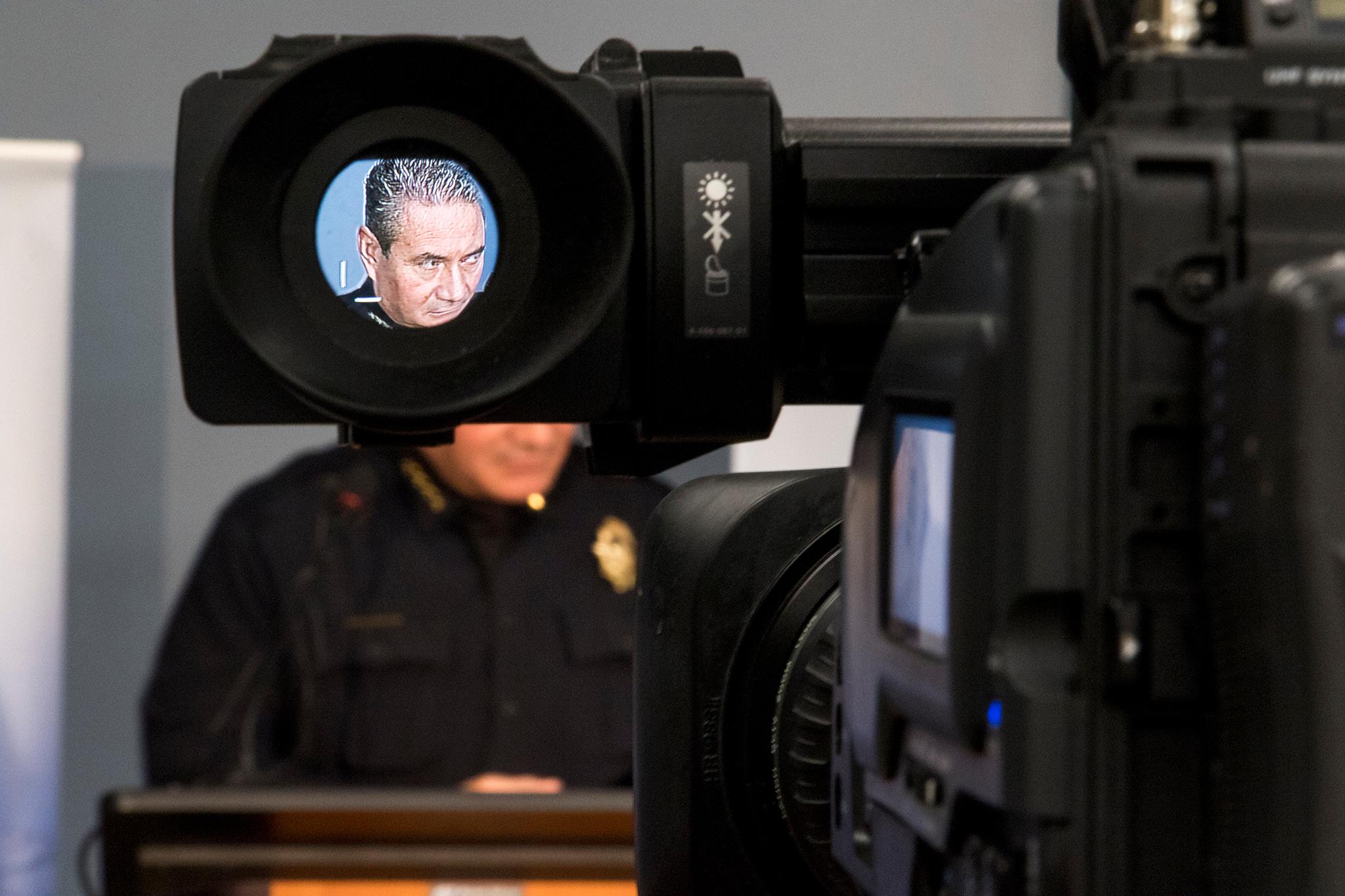The city's top law enforcement officials on Wednesday conceded that police officers sometimes mishandled last summer's unrest, but they also defended the Denver Police Department's actions, citing "unprecedented" events, as elected leaders questioned them.
Director of Public Safety Murphy Robinson and Chief of Police Paul Pazen appeared before Denver City Council's safety committee to respond to a December report from the city's independent police watchdog that found DPD officers acted dangerously and anonymously when trying to control crowds gathered to protest racism and police violence. DPD accepted over a dozen internal changes, including buying adhesive strips for body cameras, tracking who works crowd-control events, and limiting the use of certain weapons on people.
Pazen repeatedly told councilmembers that his department is still learning how to manage large crowds. He differentiated between peaceful protesters and others, some of whom launched firecrackers and threw rocks and bottles at officers who were heavily armored. DPD used more sophisticated weapons to repel people. Eighty-one officers were injured, according to the report from the Office of the Independent Monitor, four seriously. No reliable number exists for injuries to the public.
"It's very difficult in some circumstances, when you have a large group, to identify the handful of individuals that are causing harm, that are violating laws, and to be able to address those without negatively impacting folks that are just there to have their First Amendment rights be heard," Pazen said.
The conversation about police reform "is a long time coming," said Robinson, who has committed to a "transformation" of Denver's criminal justice system. He called the "riots and protests" from 2020 "unprecedented" and "very difficult." While Robinson said he welcomes the harsh report against his department, he also defended DPD.
"I will say that the vast majority of our law enforcement officers come to work every day and do an impeccable job," Robinson told councilmembers. "It is the calls for service that we don't hear about that I believe are the essence of what public safety is all about."
Most councilmembers were more concerned with what DPD did wrong, not what it does right. Last year's protests resulted in 123 internal DPD investigations into the behavior of officers who may have used weapons and other types of force against people. Attorneys have also filed more than 50 claims against the city for police misconduct.
City Councilmember Candi CdeBaca, who has tried to replace DPD with a "peacekeeping office," said she was troubled that DPD hasn't punished any officers for their roles in the protests yet.
"I'm frustrated that we've spent yet another hour of this city's time telling them that they can be abused by DPD and DPD can just apologize and tell them they'll do better next time, and we've got to deal with it," CdeBaca said.
Pazen said officers will be held accountable once the internal investigations are finished.
"These investigations have to be as comprehensive as possible," he said.
CdeBaca also asked Pazen about 20 cases that have been closed because DPD could not identify the officers. She wanted to know what the chief was doing to encourage them to come forward. Pazen did not answer the question.
City Councilmember Robin Kniech said she was interested in knowing what gaps or trends Pazen might've identified in the report. He said DPD is consulting other cities and academics but did not offer specifics.
Kniech said she was also interested in accountability for individual officers, but differentiated between managers who ordered officers to do the wrong thing and officers who went rogue. Pazen said some higher-ranking officers are being investigated.
City Councilmember Amanda Sawyer grilled Pazen on the net cost -- overtime, weapons, ammo -- of DPD's response. She said she has asked repeatedly for the numbers but has received a patchwork of figures in return. Pazen said the city saw $4 million in property damage, but he would "get back to her" on other costs.
Sawyer also wanted to know how DPD could responsibly manage crowds in the future when other police forces don't have to abide by Denver's rules. Several jurisdictions aided DPD last year.
"I very much appreciate DPD's willingness to change our policies and procedures around the use of things like rubber bullets and upping body cams and things like that ... but that doesn't do any good if we are asking outside organizations to come in and not holding them to our standards," she said.
Pazen said that while he agrees with the recommendation if placing outside police forces under Denver's rules, he cannot force them.
Pazen acknowledged DPD's faults and defended his department under what Robinson called "unprecedented" circumstances. He also preached unity.
"We do want people to have their voices heard, to have those voices heard in a peaceful way, to turn those into actions like voting to get the types of changes that we need without resorting to violence," Pazen said. "Violence is not the answer, even unreasonable or inappropriate force by law enforcement. That is not the answer. We have to work together to try to overcome these types of challenges."













